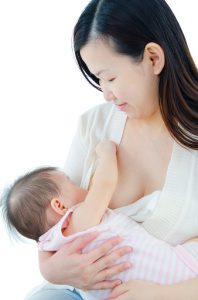Have you ever had an itch in your ear and gone to someone older in your family to find out why? If the answer is yes, you may have heard that itching ears mean that someone is talking about you.
With all due respect to those spreaders of old wives’ tales, there is probably a more credible medical reason why our ears itch on occasion. The hard part is figuring out which of the many possible conditions or habits is causing this reaction.
Identifying the culprit can lead to appropriate treatment for itchy ears. Here are some potential causes:
- Psoriasis – Pain or itching on the skin on or around your ear might be an indication of psoriasis, a relatively common skin condition. If this is the case, you might notice a buildup of rough, dry, red patches or scales in the external area of your ear that can itch or hurt. There are a variety of treatment options including topical medications or steroids.
- Skin allergies – The skin inside your ears can itch because of an allergic reaction to something that is applied in or near your ear. A new hair product may be the culprit and earrings that contain nickel have also been known to cause an allergic reaction. Be mindful whenever introducing anything new to your skin and stop using it if you believe it is the cause.
- Food allergies – Similar to reactions from skin contact, some might have an allergic reaction to something they ate, causing their ears to itch. Certain fruits, vegetables, or tree nuts are the most common sources of food allergies. A doctor can test for the source of a food allergy, determine the severity and prescribe the appropriate medication.
- Hay fever – This condition, also known as allergic rhinitis, occurs when individuals have allergic reactions to particles commonly found in the atmosphere. These particles range from animal fur to dust mites and pollen. Experiencing itchy ears along with watery eyes and a runny nose is not uncommon among hay fever sufferers.
- Infections – Itchy ears can sometimes be a sign of an ear infection. Bacteria and viruses cause them, usually when you have a cold or the flu. One kind of infection, swimmer’s ear, can happen when water stays in your ear after you swim. To stop the itch, you’ll need to treat the infection, possibly with ear drops or antibiotics.
- Improper cleaning – Placing cotton swabs into your ears can inflame your ear canal and leave you itching. Pins, paper clips, matchsticks, and your fingers can also scratch the skin inside your ears, making it easy for bacteria to enter and cause an infection. Excessive ear wax build-up can also cause your ears to itch. Your doctor can remove excessive wax using special instruments.
Regardless of the reason you are experiencing itchy ears, it is important to be mindful of any changes in your diet or environment and share that information with your doctor so he or she can prescribe the correct course of treatment. Our Department of Internal Medicine offers allergy and immunology services to help in diagnosing allergies.
To make an appointment at Flushing Hospital’s Ambulatory Care Center, please call 718-670-5486. We’ll help you to get to the bottom of your problem with itchy ears so that you can feel your best—and hear your best—from one day to the next.
All content of this newsletter is intended for general information purposes only and is not intended or implied to be a substitute for professional medical advice, diagnosis or treatment. Please consult a medical professional before adopting any of the suggestions on this page. You must never disregard professional medical advice or delay seeking medical treatment based upon any content of this newsletter. PROMPTLY CONSULT YOUR PHYSICIAN OR CALL 911 IF YOU BELIEVE YOU HAVE A MEDICAL EMERGENCY.

